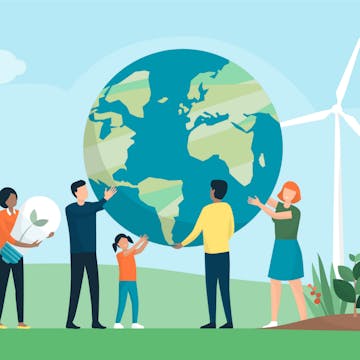

Renewable Energy
Resources and Technologies

In our course, you will become familiar with the basic concepts of renewable energy. Get an idea about the basics of determining the potential of renewable energy resources, including its territorial, temporal and climatic variability.
We paid great...
Read more
Good to know
Save this course
Activities
Career center
Renewable Energy Analyst
Hydropower Engineer
Solar Photovoltaic Designer
Wind Turbine Technician
Energy Policy Analyst
Energy Project Manager
Energy Economist
Energy Auditor
Energy Consultant
Environmental Engineer
Environmental Scientist
Sustainability Manager
Mechanical Engineer
Electrical Engineer
Civil Engineer
Reading list
Share
Similar courses
OpenCourser helps millions of learners each year. People visit us to learn workspace skills, ace their exams, and nurture their curiosity.
Our extensive catalog contains over 50,000 courses and twice as many books. Browse by search, by topic, or even by career interests. We'll match you to the right resources quickly.
Find this site helpful? Tell a friend about us.
We're supported by our community of learners. When you purchase or subscribe to courses and programs or purchase books, we may earn a commission from our partners.
Your purchases help us maintain our catalog and keep our servers humming without ads.
Thank you for supporting OpenCourser.

